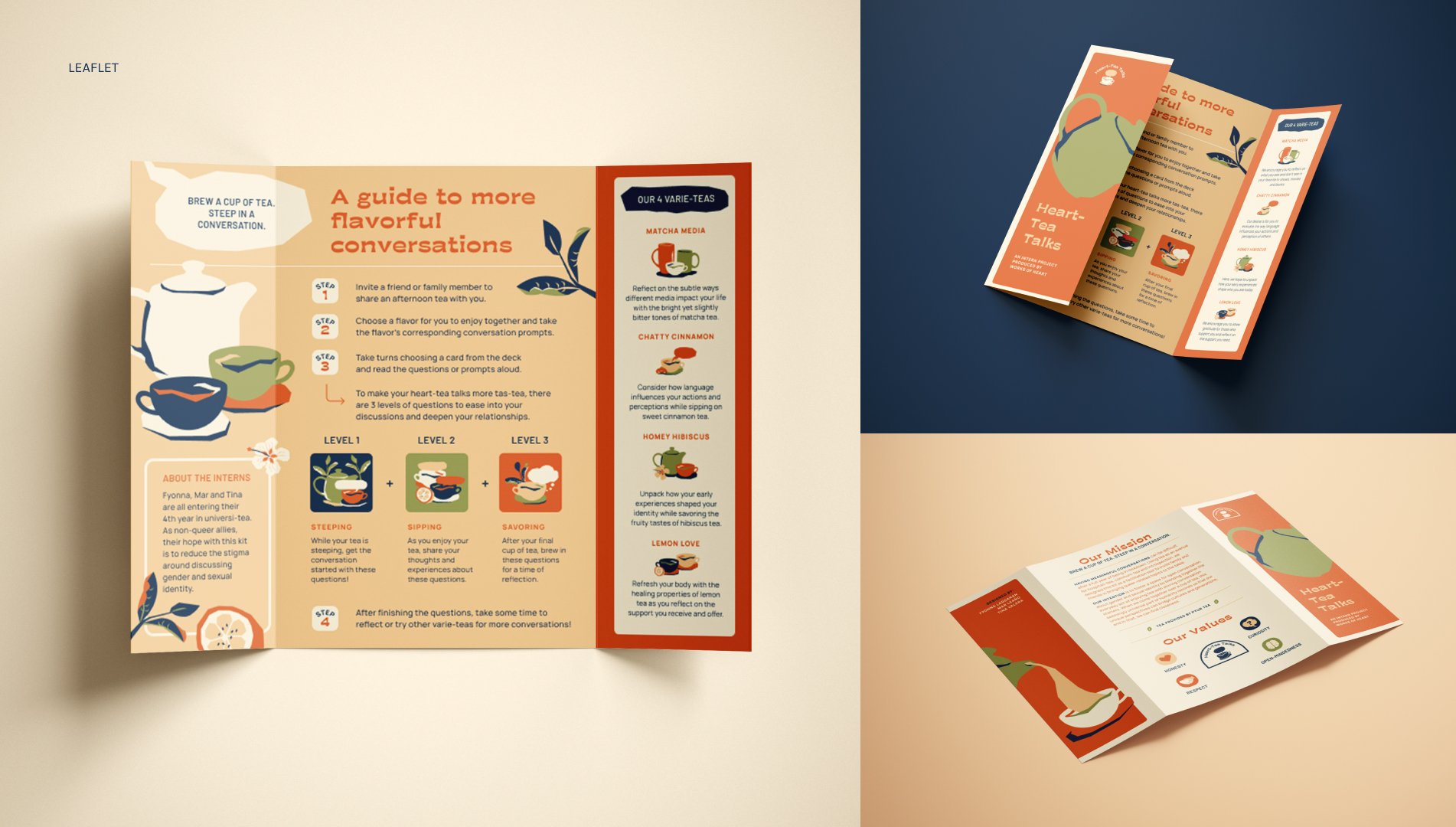
Heart-Tea Talks
creative direction, visual identity, packaging, social mediaHeart-Tea Talks is a kit containing an assortment of tea flavors accompanied by a set of questions and prompts about queer-related topics. Our intention is to foster a space for open conversation about gender and sexual identity by blending together the everyday act of enjoying tea with stirring conversation starters.
completed with dapat studioCO-DESIGNER
Mar Leaño
CO-DESIGNER
Tina Valera
A Warm Invitation to Meaningful Conversations
Much like the comforting warmth of a cup of tea, the tone of our brand’s verbal identity invites openness and approachability, making the topic of gender and sexual identity engaging and accessible. Through thoughtful questions and prompts, we encourage audiences to explore these conversations in the safety and comfort of their own homes, fostering meaningful dialogue.
Packaging for Thoughtful Conversations
The packaging for this kit is designed to be fun, inviting, and perfect for a younger audience. Featuring playful sticker applications, it adds a personal touch while encouraging reflection on gender and sexual identity.






